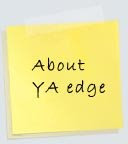This week I had a request from an agent I was really excited about. Stoked would probably be a word you could use for my emotions when realizing she wanted to see my story. Then I read her letter. She asked for the first 30 pages which was no problem at all. The first 30 were set and ready to go. Then I read the rest of her request… a two page synopsis.
Crap.
The dreaded synopsis. I know I said the same thing when I talked about writing a query. Everyone dreads a query, but a full synopsis is definitely a different beast. How do you summarize the whole book from start to finish in 500-600 words (two pages double-spaced pages)? That is exactly what I asked myself after I received the request. I’m not saying my synopsis is great, or that I even know how to write one, but here is how I went about mine.
1. First, I went chapter by chapter and wrote a sentence or two about each one. What was important in the chapter?
2. Once I finished going through the chapters the synopsis was four pages and a bunch of choppy sentences with no flow. At a loss, I stared at it and didn’t see how I could possibly cut it in half. That’s where the soul searching comes in. Ask yourself what the real conflict is in the story. THAT is what your synopsis should focus on.
3. Now I have the four pages staring back at me, what next? I read through and deleted all the unneeded stuff; Subplot, side characters or things that didn’t fall into the real conflict and solution in the story.
4. Left was the important stuff. From the first line to the last, the synopsis should tell the heart of your story. If not, go back and figure what’s really important. That should be all you care about at this point. Is it worthy of even a word when we’re talking about 500-600 within two pages? No? It ends up on the cutting room floor.
5. Here’s the second hardest part (the first being #3 and #4). My guess is you have about three pages, maybe a little less. It’s time to not only transition the paragraphs into your story, but to find all of the unnecessary words that are taking up space. Each line…each WORD is taking up valuable space. It better deserve to be there. That is essential.
6. Now that you’ve looked at each work, read it over 100 times. Read it out loud. Does it tell your story the best way possible? Is there conflict and resolution? Is everything clear?
7. Now have your critique partners read it over and comment. They know your story (or should) almost as well as you do. Do they think the synopsis portrays the story?
8. Here’s what I found invaluable. I had my husband read my synopsis and help chop it. He has only read the first 60 pages of Lost and Found. He knows the basic idea but has no attachment to the side characters or subplots. He was able to give a new perspective that I couldn’t have, nor my crit partners.
9. Now send that synopsis out if you think it’s the best way to tell your story. Make sure it’s double-spaced (if it’s more than one page), 12pt, Times New Roman with 1” borders. Oh yeah, and don’t forget to breathe.










3 comments:
Fantastic way to write a synopsis!
Good luck - let us know how you go with the agent!
Hey Megan...thanks! To me, it was the only logical way to go about it, but would love to hear other people's way of writing a synopsis.
I will keep everyone posted!
That sounds like a pretty good method. Excited about the request!
Post a Comment